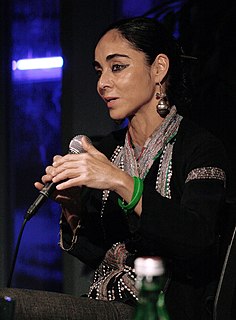A Quote by Richard P. Feynman
Because atomic behavior is so unlike ordinary experience, it is very difficult to get used to, and it appears peculiar and mysterious to everyone - both to the novice and to the experienced physicist.
Related Quotes
I was never conscious of filming except for when I was location scouting. In a way, that is the most important part of the entire process - and the most private. I'm so used to doing that alone. Unlike every other part, it's just me, alone, on location.It's very hard to describe what I'm looking for - something that feels both familiar and strange at the same time. It's not enough for it just to be strange or mysterious, it also has to feel very ordinary, very familiar, and very nondescript.
In some ways more painful is the fact that their experience appears to be fading from the collective memory of humankind. Having never experienced an atomic bombing, the vast majority around the world can only vaguely imagine such horror, and these days, John Hersey's Hiroshima and Jonathan Schell's The Fate of the Earth are all but forgotten. As predicted by the saying, 'Those who cannot remember the past are condemned to repeat it,' the probability that nuclear weapons will be used and the danger of nuclear war are increasing.
I don’t think there is any such thing as an ordinary mortal. Everybody has his own possibility of rapture in the experience of life. All he has to do is recognize it and then cultivate it and get going with it. I always feel uncomfortable when people speak about ordinary mortals because I’ve never met an ordinary man, woman, or child.
The issue of racism and racial prejudice. It is very, very difficult to discuss. It is difficult to discuss the issue of apartheid. Many have made the observation that it is very difficult to find anyone in SA who ever supported apartheid because everyone was opposed, it was against our will and so on.
There is a kind of desperate need for somebody to tell everyone what to do, which I find really peculiar in America. And then when you tell them, they're not interested, because it's also a country where everybody's opinion is their opinion, and they really don't give a damn what you think. So it's a very odd experience.
I always used to suffer a great deal if I let myself get too close to reality since the definitive world of the everyday with itshard edges and harsh light did not have enough resonance to echo the demands I made upon experience. It was as if I never experienced experience as experience. Living never lived up to the expectations I had of it--the Bovary syndrome.
Our brain and our whole nervous system and our whole body are only created in relation to other people and to the environment. So what we have here is an enormously complex notion of both consciousness and unconsciousness. That's why these models get very difficult, because you can't reduce our subjective and intersubjective experience to neural reductions.
You're faced with creation, you're faced with something very mysterious and very mystical, whether it's looking at the ocean or being alone in a forest, or sometimes looking at the stars. There's really something very powerful about nature that's endlessly mysterious and a reminder of our humanity, our mortality, of more existential things that we usually manage to not get involved with very often because of daily activity.





































